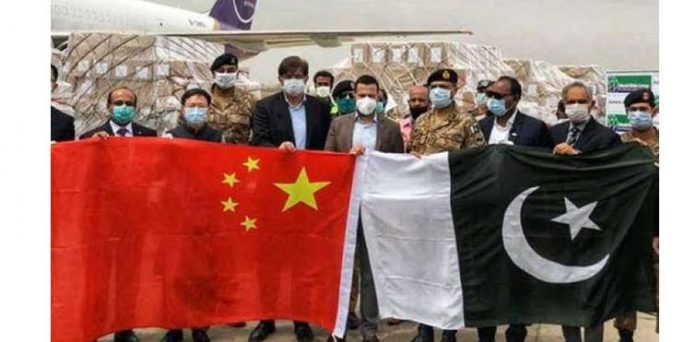BEIJING, Jan. 8 /DNA/ – China’s changes resonate with grassroot Pakistanis, says report published by China Economic Net (CEN) on Friday.
“Things had improved a lot here,” noted Asif Jalil, a Pakistani businessman and restaurant owner based in Beijing, adding that 2021 marks the 70th anniversary of the establishment of diplomatic relations between China and Pakistan and he wishes China to emerge as a beautiful country.
“It was very lively before,” Jalil cherished the good old days since he had been here for more than 20 years, “you could see restaurants had their tables outside, with people sitting, eating food, enjoying beer, chatting in the evening almost in every Hutong (a narrow lane), especially in summer. But this caused some pollution so slowly these things had gone.”
However, he admitted that things and people had improved. “Beijing has changed a lot,” he likes the atmosphere here – a city renowned for its ancient, opulent palaces, temples, and huge stone walls and gates.
“One thing is the physical change. There are more buildings and infrastructures here. It’s much more modern than before.”
“At the same time, we are seeing big changes in people. People’s manners are improving. The way they are operating is much different from the traditional ways when the country was poorer.
When they are more like in the third world countries, there is a big difference in different segments of society. People lie; people steal…”
Now as economically China becomes better, individuals started improving, he added. “For example, throwing garbage or spitting on the roads. If someone tries now – mostly older people – the youngsters would stare at them and sometimes try to stop them, so it’s much cleaner now.
Also, people are talking much politer than before. Their talks are not that rough like it used to be.”
These changes are also recognized by Muhammad Kamran, a Pakistani chef devoting himself to promoting Pakistani cuisine in Chengdu, China, the country he loves very much.
Kamran has been to many countries but he found Chinese people the most loving and friendly. “Whenever I am lost in China, at bus station or subway, I just had to show the name of the intended destination to some Chinese around and they would guided me to the right direction.
The first time when I landed at Shanghai’s airport, I didn’t know how to find the exit and reach my destination, and some Chinese helped me contact my boss and arranged a taxi for me.”
Living in China for many years, he regards China a safe place to enjoy life. “When I was in Yiwu, I have seen people enjoying nightlife there.
You can go out at any time in the evening without any fear. I was afraid at the beginning but later I found there was nothing to worry about and I reckon China as a very safe country and you certainly won’t get harassed or robbed here.”
Muhammad Shahbaz, a Pakistani surgeon and PhD scholar at China’s Shandong University, is impressed by China’s poverty alleviation campaign over the past decades.
His perception about China was different before. “I used to see the Bruce Lee and Jackie Chan movies on TV, and it was everybody’s thought that every Chinese can play Kongfu and every Chinese rides bicycle.”
Spending more than a decade in China as a medical student, he witnessed the rise of China from Beijing Olympics in 2008, and he also saw how China help countries along Belt and Road keep better health care opportunities for common people. “China not only helped other countries, its economy has also boosted.”
Also, he mentioned, as the world’s second largest economy, China has lifted more than 700 million people out of poverty. “700 million is something. Pakistan has a population of around 220 million people, if you lift the needy above the poverty line, that’s a big achievement. I pay my tribute to that and I like the idea of BRI.”
“I hope that China will emerge as a beautiful country, not just financially but also culturally,” Jalil told China Economic Net, adding, “Pakistan and China can cooperate in many, many fields and now we have been collaborating already. We are working together.”

















